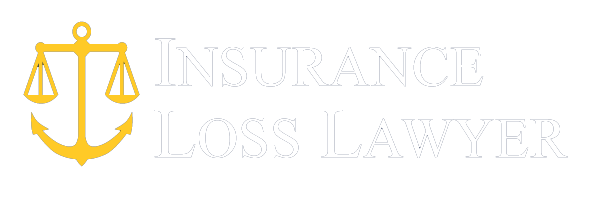Our attorneys have extensive experience litigating insurance claims on behalf of homeowners, vessel owners and business owners against their insurance companies. We have handled claims involving the improper calculation of deductibles, determining the scope and value of a loss, coverage issues and cases where the insurance company simply refuses to pay the right amount.
Florida is swamped with the claims resulting from the recent hurricanes bringing destruction to our area. Business and insurance companies will cut costs wherever they can. Insurance companies make money by collecting premiums and not by paying out claims. Adjusters will try and reach quick settlements with you for unreasonable amounts in attempts to save the insurers money. Insurance companies will try and delay some claims and just flatly deny other claims that should be paid. Unfortunately, many insureds do not understand that they can negotiate with the adjusters and insurance companies and that they can fight the insurance companies to get a fair and reasonable recovery.
The lawyers and staff at Miami Maritime Law, are experienced in making insurance companies pay for full value for you loss and to cover claim even when they have previously been denied.
In Florida, the typical hurricane policy will have a deductible equal to 2-5% of the building’s value. Therefore, if your home is worth $100,000 and you have elected the standard 2% deductible, your out of pocket expenses will be $2,000. If you have elected the higher deductible to save on premiums, your out of pocket expenses following a hurricane will be $5,000.
The typical hurricane policy will cover the following losses:
• Wind damage to your home and attached structures;
• Rain damage that is a result of rain entering through a wind-damaged area;
• Emergency repairs to prevent further damage;
• Debris removal;
• The actual cash value or replacement value of your damaged personal property; and, living expenses if you are forced to leave your home.
Flood insurance is usually sold separately. It can cover other types of water damage such as: waves; tidal action; overflowing rivers, creeks or lakes; and groundwater runoff. The comprehensive section of an auto insurance policy usually covers vehicles damaged by hurricanes.
When you need assistance in interpreting the provisions of your policy and negotiating an equitable settlement with your insurance company, we can help.
I. Make temporary repairs.
 Make temporary repairs to prevent further damage. Cover holes in the roof, walls, doors and windows with plastic or boards. Make sure that your vessel is seaworthy or try to save electronics and engines by properly drying and pickling them.
Make temporary repairs to prevent further damage. Cover holes in the roof, walls, doors and windows with plastic or boards. Make sure that your vessel is seaworthy or try to save electronics and engines by properly drying and pickling them.
Save receipts for any material you buy. Your insurance company will reimburse you for the cost.
Don’t make extensive permanent repairs until after the claims adjuster has been to your home and assessed the damage.
Avoid using electrical appliances, including stereos and television sets, that have been exposed to water unless a technician has checked them.
II. Review your insurance policies.
Now is the time to get out all those policies and insurance documents. Review your policy and notes before you speak with a company representative. You will want to read the policies that you have to determine which policy and/or insurance company covers this loss. You do not want to file a claim with an insurer that does not cover your loss as many insurers will consider this claim when you buy next years policy. If you aren’t prepared, you might say something that the company could twist into a basis for denying the claim. That’s a possibility because the coverage, exclusion and limitation provisions contained in all insurance policies are so complex.
Your Declarations Page is generally the first or second page of the policy. It states the dollar limits applying to each category of coverage, and lists the endorsements and riders, (extras) that you have in addition to the basic policy. This information will enable you to review your basic coverage categories:
• Dwelling
• Contents (Personal Property)
• Loss of Use (sometimes called “Additional Living Expenses”.
There are a few legal rules are on your side when it comes to deciphering a policy. If a dispute over what should be covered goes to court, the coverage provisions will be construed broadly, while the limitations and exclusions will be interpreted narrowly. And because the company wrote the policy, any ambiguities in it will be interpreted in your favor, and against the company.
III. Call your insurance agent or insurance company.
Report the damage to your insurance agent or insurance company representative. Most policies state that you must make a claim within a “reasonable” time after the loss. Do not wait to long before filing a claim or your insurance company will deny coverage.
When you make your claim ask questions such as:
• Am I covered?
• Does my claim exceed my deductible? (Your deductible is the amount of loss you agree to pay yourself when you buy a policy.)
• How long will it take to process my claim?
• Will I need to obtain estimates for repairs to structural damage?
• Who is my adjuster?
• What is the claim and policy number?
• Who can I call if there is a problem with the claims process of if there is delay?
IV. Save receipts for all repairs and for additional living expenses.
Most insurance policies cover additional living expenses such as food and housing costs, telephone or utility installation costs in a temporary residence, extra transportation costs to and from work or school, relocation and storage expenses and furniture rental for a temporary residence. Your insurance company can advance you money for these expenses. The payments will be part of the final claim settlement. Let your insurance company know where you can be reached so that the claims adjuster can give you a check.
The maximum amount available to pay for such expenses is generally equal to 20 percent of the insurance on your home. So on a home insured for $100,000, up to $20,000 would be available. This amount is in addition to the $100,000 to pay for repairs or to rebuild your home. Some insurance companies pay more than 20 percent. Others limit additional living expenses to the amount actually spent during a certain period of time, such as 12 months, instead of a maximum percentage of the policy limit.
V. Decide if you need a Public Adjuster.
Your insurance company provides an adjuster at no charge to you. The adjuster that the insurance company will send works for the insurer or is paid by the insurer and adjusters usually have the insurer’s interests and not yours in mind. Public Adjusters have no relationship with your insurance company and charge a fee for their services. They will inspect your loss and evaluate the damages just as the insurance company adjusters do. Public adjusters fight for you and are often very experienced with construction and claim handling. They have often handled many claims with your insurance company and may have worked with the adjuster that the insurance company has assigned to your claim.
Public adjusters act on your behalf and will do all the correspondence and communication with the insurer and adjuster. Besides saving you lots of time and effort working on your claim, you should note that Public Adjusters can make statements and submit documents that are not considered yours. This can be very important as insurers and adjuster will take and use your statements against you.
Public adjusters are often instrumental in getting claims resolved and for getting you true value for your claim. Public adjusters will generally charge you a percent of the total value of your settlement for his or her services. The fee isn’t covered by your insurance policy. Although the percent fee of a Public Adjuster might seem high, Public adjusters can often get you two to three times as much for your claim and their fees are almost always worth the investment.
If you decide to use a public adjuster, first check his or her qualifications by calling your state insurance department. Ask a lawyer or friends and associates for the name of a professional public adjuster they can recommend. Avoid individuals who go from door to door after a major disaster unless you are sure they are qualified.
VI Preparing for the adjuster’s visit.
The claims process may begin in one of two ways.
1. Your insurance company may send you a claim form, known as a “proof of loss form,” to complete. Do not provide a proof of loss form unless you state that that amount or items listed therein can be amended if additional damage or expenses are discovered.
2. An adjuster may visit your home first, before you’re asked to fill out any forms. An adjuster is professionally trained to assess the damage. Remember that the adjuster works for the insurer or is paid by the insurer and adjusters usually have the insurer’s interests and not yours in mind. If you have a Public Adjuster then make sure the Public Adjuster is there at the inspection and let the Public Adjuster speak to the insurance adjuster and the more information and documentation you have and can provide to your insurer about your damage the faster your claim can be settled.
Major disasters make enormous demands on insurance company personnel. Your adjuster generally will come prepared to do a thorough and complete study of the damage to your home. However, the large number of claims may place time restrictions on adjusters forcing them to “scope the loss.” If there are large claims such as hurricanes, many insurers will bring adjusters in from out of state or hire many inexperienced adjusters. These adjusters often do not know the local market and pricing of repairs/ contractors in the area. If your adjuster doesn’t make a complete evaluation of the loss on the first visit, try to set up an appointment for a second visit.
Be sure to keep copies of lists and other documents you submit to your insurance company. Also keep copies of whatever paperwork your insurance company gives you.
1. Make lists of the damaged items. Include the brand names and model numbers of appliances and electronic equipment. If possible, take photographs of the damage. Don’t forget to list items such as clothing, sports equipment, tools, china, linens, outside furniture, holiday decorations and hobby materials.
2. Prepare a home inventory form that includes information such as Items (including brand name), quantity, where purchased, date of purchase, replacement cost, cost of repair, the items actual cash value (ACV) and any additional information that you may have and put together a set of records – old receipts, bills and photographs – to help establish the price and age of everything that needs to be replaced or repaired.
3. If your property was destroyed or you no longer have any records, you will have to work from memory. Try to picture the contents of every room and then write a description of what was there. Try also to remember where and when you bought each piece and about how much you paid.
4. Don’t throw out damaged furniture and other expensive items because the adjuster will want to see them.
1. Identify the structural damage to your home, vessel and other buildings on your premises, like a garage, tool shed or in-ground swimming pool.
2. Make a list of everything you would like to show the adjuster when he or she arrives. This should include cracks in the walls, damage to the floor or ceiling and missing roof tiles. If structural damage is likely even though you can’t see any signs of it, discuss this with your adjuster. In some cases, the adjuster may recommend hiring a licensed engineer or architect to inspect the property.
3. Have the electrical system checked. Most insurance companies pay for such inspections.
4. Get written bids from reliable, licensed contractors on the repair work. The bids should include details of the materials to be used and prices on a line-by-line basis.
VII The Offer and Beyond
You’re not required to simply accept what the adjustor offers . . .
An insurance company claims adjuster may offer an immediate “on the spot payment.” If this happens, be weary, as they probably aren’t doing it just to be helpful. They will be seeking to limit their company’s exposure and reach a final settlement of your claim. Make certain that it is only an “advance” and not a final settlement. Don’t sign anything that could be considered a full release and, before cashing your check, be sure that there isn’t release language on the back of your check stating that it is in “full and final settlement” of your claim. We will have one of our experienced attorneys review your settlement before you sign unless you are certain that the settlement offer is equitable.
Don’t be in a hurry to give the insurance company a “release”. You may later uncover serious damage that you did not initially recognize. Once you sign a release in favor of the insurance company, you may not recover anything further form them for that claim.
VIII Disputing your claim
If your insurance company isn’t treating you fairly, deal with them politely and confirm everything in writing. Take careful notes of who said what to you, and get the company to respond in writing, if possible. This may be the point at which you would like to get an attorney involved.
Unlike insurance company claims adjusters, who are paid to keep claim costs down, our firm would help you to make sure you get all the benefits you have been paying for. Your insurance company owes you a duty of good faith. If it wrongfully denies or low-balls your claim, it may be liable for both benefits due under your policy and punitive damages for bad faith.
When you have suffered a loss and filed insurance claim and you’re not sure what your rights are, you may be concerned about trusting your insurance company. The only way to ensure a fair settlement of a claim is to educate yourself and hire an attorney to assist you in the process. The first thing you need before making these decisions is a complete copy of your policy, including the “Declarations Page” and all “Endorsements” and “Riders”.
If the claim is denied or you feel the offer is too low, demand that the company tell you what language they are relying on in your homeowners’ policy to deny the claim or offer too little. Once the insurance company tells you the reasons for its action it cannot come up with new reasons later. You have locked them in.
If you feel that the offer is too low or the denial is wrong, the best process for getting your complaint resolved is as follows:
a. First, complain higher up in the insurance company. Use the records you have kept since the claim process began. The more serious the insurance company sees that you are in documenting how you were treated, the more likely they will be to make a more reasonable offer.
b. Second, complain to your state insurance department. All states will at least get responses from your company to the complaint. A few states will actually twist the arm of the insurance company in clear cases of bad claims handling. It is important to dispassionately present your side of the story, using the notes you have been taking.
c. Third, see a lawyer. Now the notes you took are vital. If your treatment was particularly bad, the courts in many states will allow damages not just sufficient to cover your claim but for “bad faith” (since insurance companies take your money in exchange for their promise to make you whole when disaster strikes, they are to act in utmost good faith in performing that obligation).
Exaggerate any aspect of a claim.
Accept the insurance company’s expert’s evaluations of your losses without getting your own expert’s estimates. The two can vary widely.
Submit to an “examination under oath” by the company without first obtaining legal advice.
Sign an insurance company release or check unless you are certain that the amount you are receiving is full and correct.
• NAIC Consumer Information Source
• Florida Department of Financial Services
• Florida Division of Emergency Management
• National Flood Insurance Program
• FEMA
For information on federal government assistance for victims of hurricanes please call FEMA at 1-800-621-FEMA (3362).
• FEMA — Hurricane Frances
• FEMA — Hurricane Charley
• FEMA — Hurricane Ivan
• FEMA — Hurricane Jeanne
For links to hurricane resources and announcement from various state agencies go to MyFlorida.com .The Florida Division of Emergency Management Web site has information about housing assistance, unemployment assistance, and food coupons. If you have an insurance question or problem relating hurricane damage, please call the Department of Financial Services HURRICANE HOTLINE at 1-800-22 STORM (1-800-227-8676).


2550 South Bayshore Drive
Suite #211
Miami, FL 33133
Tel: 855-456-0445
Fax: 305-967-8182
Info@NeblettLaw.com

Just write down some details and our customer success heroes will get back to you in a jiffy!